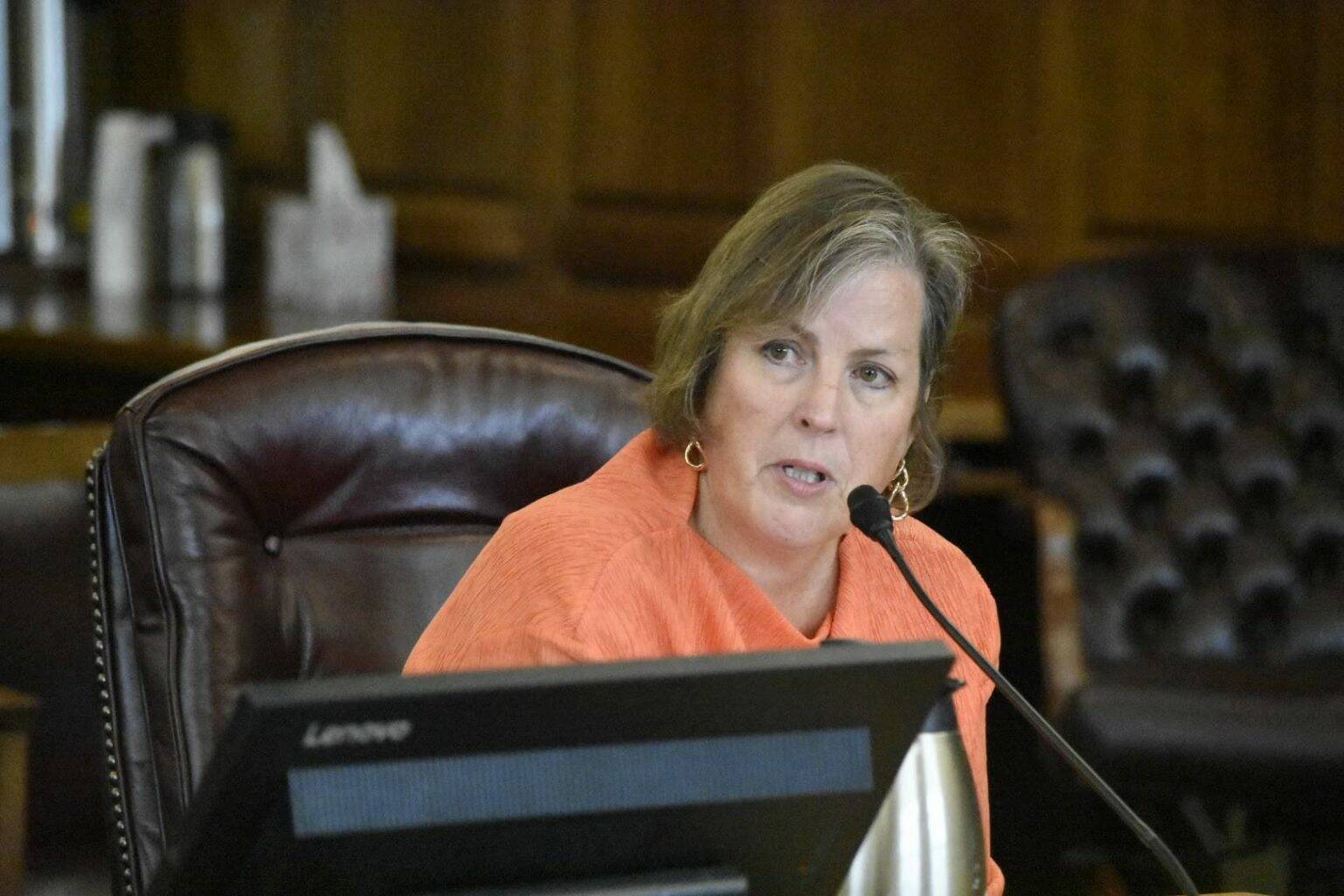The sudden firing of the Alaska Permanent Fund Corporation’s CEO Angela Rodell has state lawmakers and political observers looking for answers.
Rodell’s firing was announced Dec. 1o, during a meeting of the APFC Board of Directors, who voted 5-1 in favor of her removal following a closed-door executive session. Rodell had clashed with board members in October over a proposal to cut pay for APFC employees, which the board ultimately rejected. The board gave no explanation for Rodell’s firing.
Since then, lawmakers and others have called for an investigation into the firing, often citing the fund’s record-breaking performance during her tenure. Speaking to the Empire Monday, Sen. Gary Stevens, R-Kodiak, said the board had a legal right to privacy under personnel laws, but an explanation was needed.
“We may never know the reason, but when you look at how well the Permanent Fund’s been doing,” Stevens said. “I hope we can set up a time and place to meet with the board to explain what happened.”
[Alaska Permanent Fund Corp. board ousts CEO Rodell]
Rodell did not respond to a message seeking request for comment.
Before becoming CEO in 2015, Rodell had been Department of Revenue Commissioner since 2013 and is currently the chair of the International Forum of Sovereign Wealth Funds. According to APFC, the Permanent Fund was at more than $50 billion in 2015 when Rodell took over the corporation, and currently sits at more than $80 billion. The fund grew considerably during the COVID-19 pandemic, which Rodell told the Empire in July was because the fund was well-positioned to take advantage of volatility in the market.
However, Rodell has also opposed the Alaska State Legislature exceeding the 5% of market value earnings the state allows itself each year to fund the government without first having a long-term fiscal plan in place. Gov. Mike Dunleavy has argued the state should overdraw the fund, only once, in order to transition the state to more fiscal footing while at the same time paying large Permanent Fund Dividends to Alaskans.
But lawmakers spent the entire summer in extended special sessions clashing over the direction of what that fiscal plan might look like, and despite four special sessions, lawmakers were unable to make much progress toward a comprehensive solution.
Current and former lawmakers called for answers on social media, and the bicameral Legislative Budget and Audit Committee has added the issue to the agenda of its Dec. 15, meeting.
• Contact reporter Peter Segall at psegall@juneauempire.com. Follow him on Twitter at @SegallJnuEmpire.

